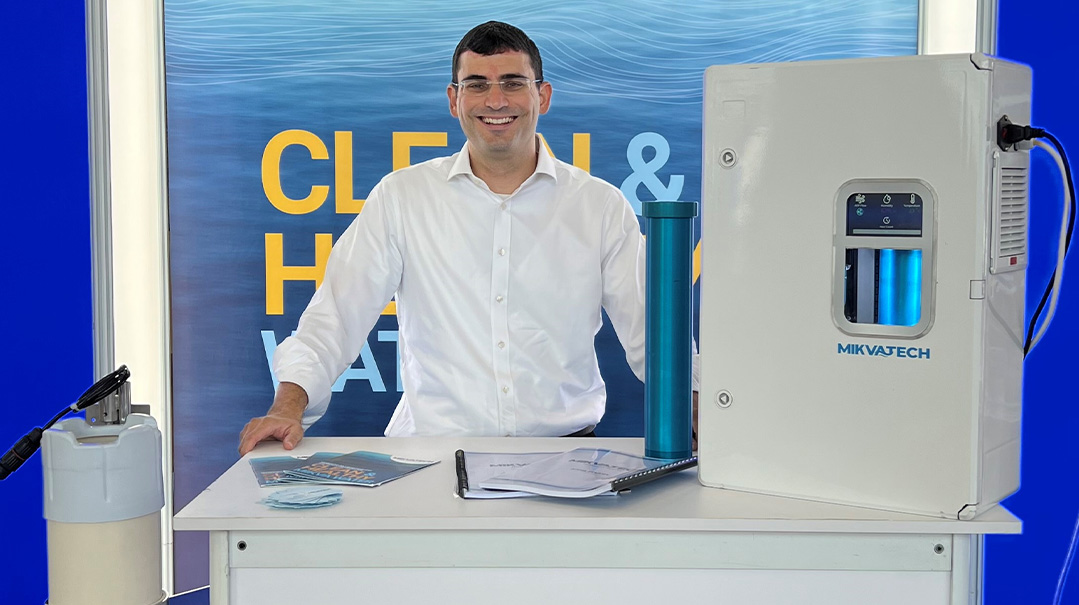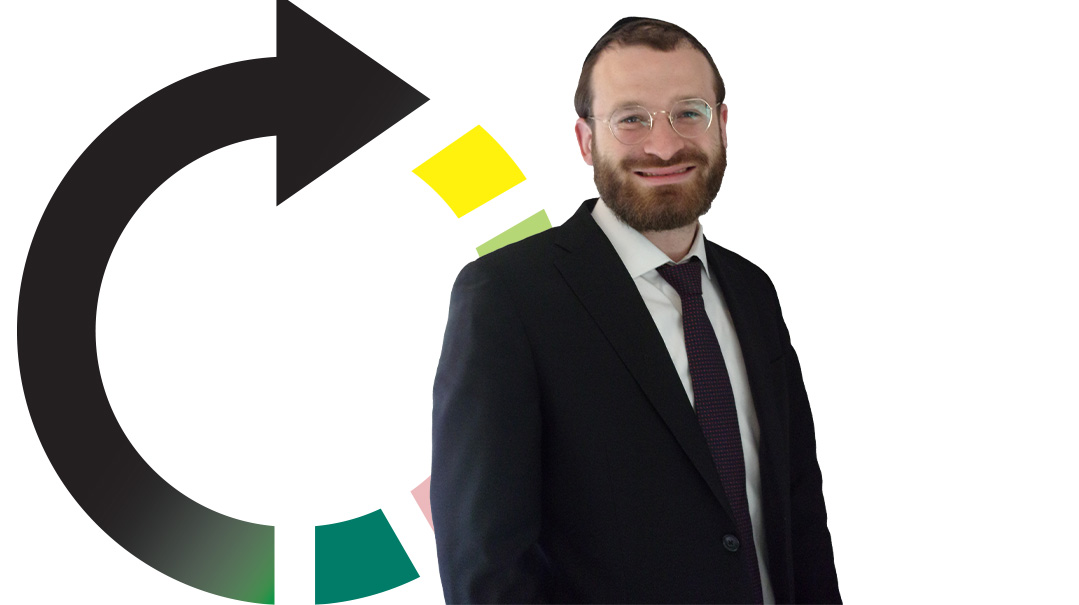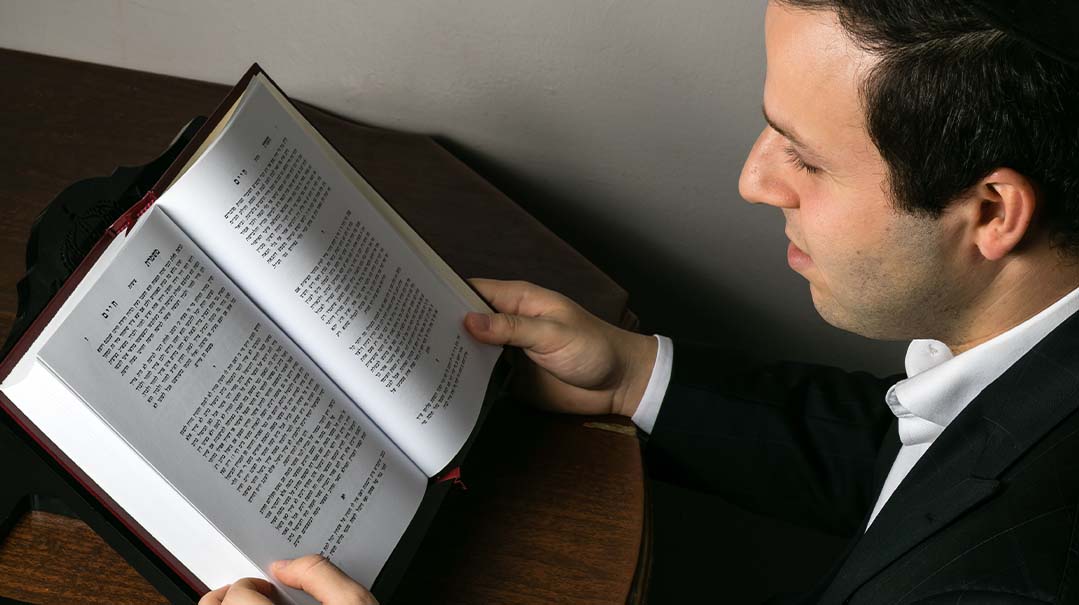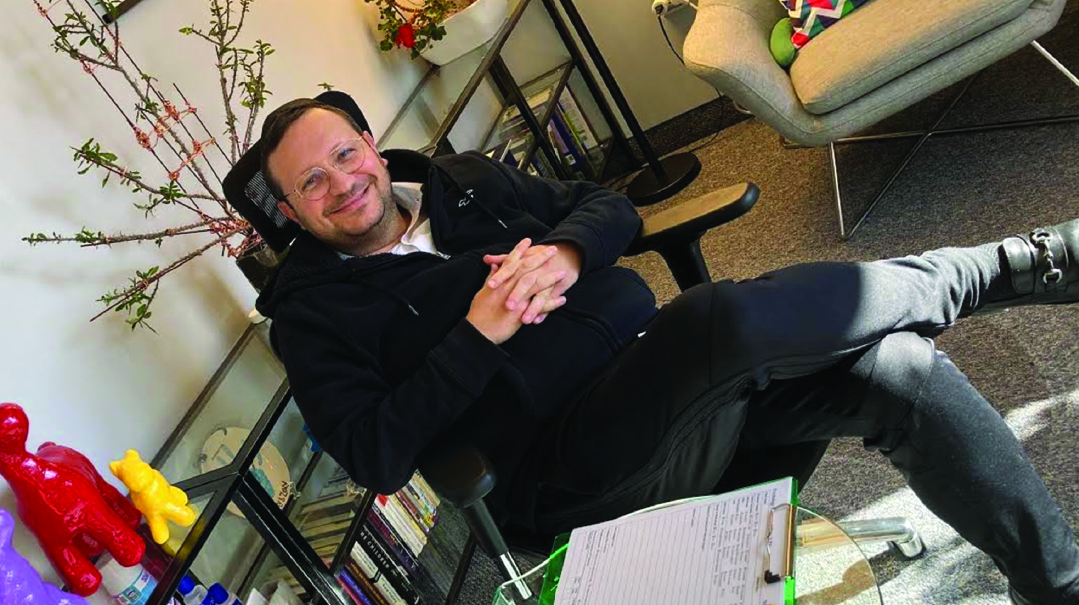A Day in the Life of Rabbi Moshe Brody

Rabbi Moshe Brody is the general studies principal at Mesivta Chasan Sofer in the Boro Park section of Brooklyn. He founded Limudai Chol Publications and the Limudai Yisroel Institute
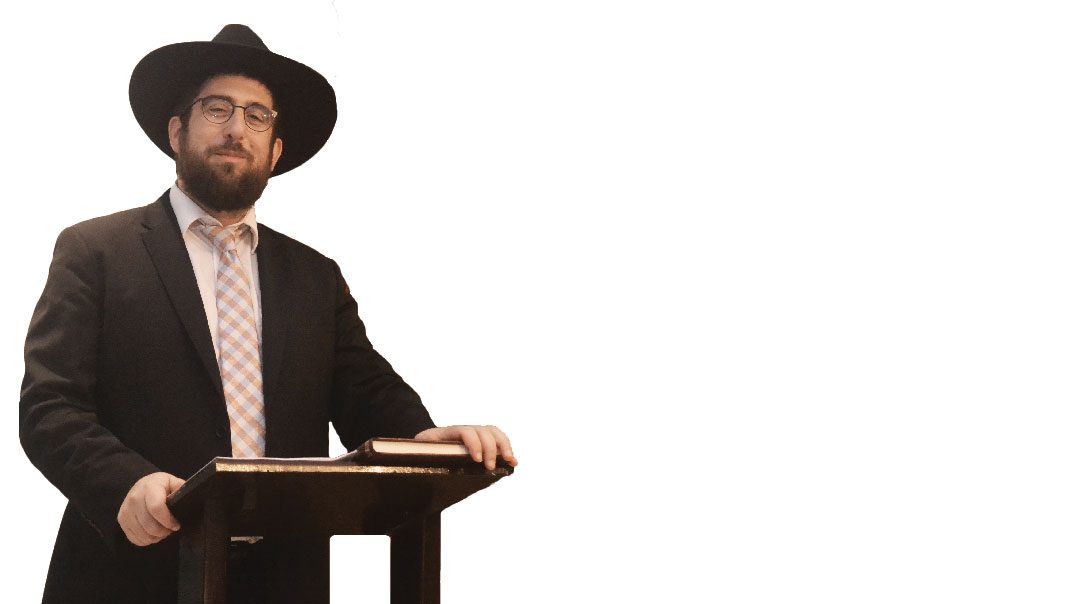
I
n Brief:
Best advice I ever got
To separate the problematic content from the main content in the curriculum — this allows each school to decide if they wish to omit it, and it makes a clear separation between that which is acceptable and even desirable to learn and that which isn’t.
Fun fact
I also put out versions for chassidish mosdos called The Mesivta’s Guide, which cover about 70 percent of Regents material.
My mantra
The Regents books are the sur meira — they keep yeshivah students from seeing or learning things we shouldn’t be looking at or learning. The institute is the next step, the asei tov — connecting Torah ideas to the curriculum.
What I do
I publish New York Regents exams study pamphlets for yeshivah students, and I create Torah-based curricula for general studies topics. I also train bnei Torah to be general studies teachers.
What that means
Take my global history review guide, for example, where I have a section about comparative religion that presents the material in a way that doesn’t violate the issur of learning about avodah zarah, and the earth science pamphlet, which discusses the earth’s age and fossils in a permitted manner. For curricula, instead of teaching science as a matter of facts, I highlight maasei Yadav maggid harakia, showing the profound chochmas haBorei in science.
How I got started
Nine years ago, I was teaching science and history in Chasan Sofer and I began giving Regents review courses. After a while, people suggested that I make sheets for the main Regents topics. I did, starting with global history, but when I began writing the living environment review, I realized I need daas Torah in how to present or not present problematic topics. I called Rav Yisroel Belsky, my rebbi muvhak, and he told me to come on a Motzaei Shabbos so we could go through it together. We sat together for several hours and spent many hours in follow-up discussions and rewritings about how to present things like reproduction and evolution. That led to the first kosher living environment Regents review book. After that, we worked together to create kosher review books for other topics.
How that became the Limudai Yisroel Institute
Years later, I was teaching secular studies in Yeshivat Shaare Torah, and the headmaster Mr. Richard Altabe told me Torah Umesorah was looking for kosher alternatives to secular textbooks. He said he’d show them my books, so I suggested that now that the yeshivah world is thinking about this, we should tackle the broader issues relating to general studies in yeshivos — that of a lack of general studies teachers, and the benefits of a Torah-enhanced curriculum. Torah Umesorah agreed to take these on, and we launched the Limudai Chol Institute to create Torah-based general studies curricula. Unfortunately, we had to stop after a year when funding dried up, but six months later, I restarted it with funding mainly from committed individuals — I’m very grateful to them! We call it Limudai Yisroel Institute, after Rav Belsky.
The biggest challenge
That this is an almost completely new field. The idea of kosher textbooks was introduced some years ago by the pioneering work of ArtScroll and Mosdos Press in the field of literature, but not in other subjects. That makes the whole concept difficult to sell: We need to pitch the idea to principals, but kosher textbooks are a novelty, distributors are few and far between, and fundraising is extremely difficult. Yet by far the hardest part is convincing talented bnei Torah to recognize the powerful chinuch opportunities and make a career out of Torah-based general studies.
Most common question I get
“Are your books NYSTL-approved?” No, they aren’t New York State Textbook Law-approved, because our textbooks are Torah-positive. Our science books proclaim on the cover, and on every page, that this world is Hashem’s. According to NYSTL regulations, textbooks must be religiously neutral. I’m also asked if the proposed new regulations will affect my textbooks. They won’t directly, because I take existing state curricula and modify them to be acceptable.
My favorite subject
Global history. When I uncover Jewish connections throughout history while putting together a curriculum, and you can see through these events that there’s clearly a Manhig Who runs the world, it’s truly a delight and a tremendous chizuk!
Most complicated topic to teach
The problematic elements of earth science. Many scientists challenge the theory of evolution, so even that’s not as complicated as earth science, which doesn’t have as many scientific challengers. We need to introduce the material in a way that stays faithful to the Torah but at the same time presents what science says.
Divine intervention
I ask my sh’eilos about new things that come up with the curricula or other materials to my Vaad Harabbanim, usually Rav Aharon Feldman and Rav Yisroel Reisman. At the recent Torah Umesorah convention, I was at a loss about how to proceed with a certain controversial publication, and Rav Feldman wasn’t prepared to give the go-ahead. Someone waiting to talk to Rav Feldman overheard my dilemma and chimed in with a good eitzah, and Rav Feldman gave his approval. Had that person not been there, the project would have been scrapped, even though we’d already invested so much money into it.
Toughest part of the process
When after hundreds of hours of ensuring the book is up to par — editing, typesetting, proofreading — something in the file gets corrupted and the book prints with a flaw. It’s happened more than once that letters get bunched together because of a glitch, and it’s extremely frustrating.
Best feedback I’ve gotten
It gives me great satisfaction to see how some of my students have benefited in parnassah from what we learned together, but I get even greater satisfaction when former students tell me about topics they remember I taught them al pi haTorah. In fact, I just met one in Lakewood last night — one of the first things he said was that I taught them about the international dateline in earth science and how it impacts us l’halachah, and now he’s studying the matter b’iyun, and that background helps him a lot. What nachas that brings me, to see how seeds planted years ago in a general studies class are helping bnei Torah today in their havanah of Torah topics!
(Originally featured in Mishpacha, Issue 780)
Oops! We could not locate your form.







